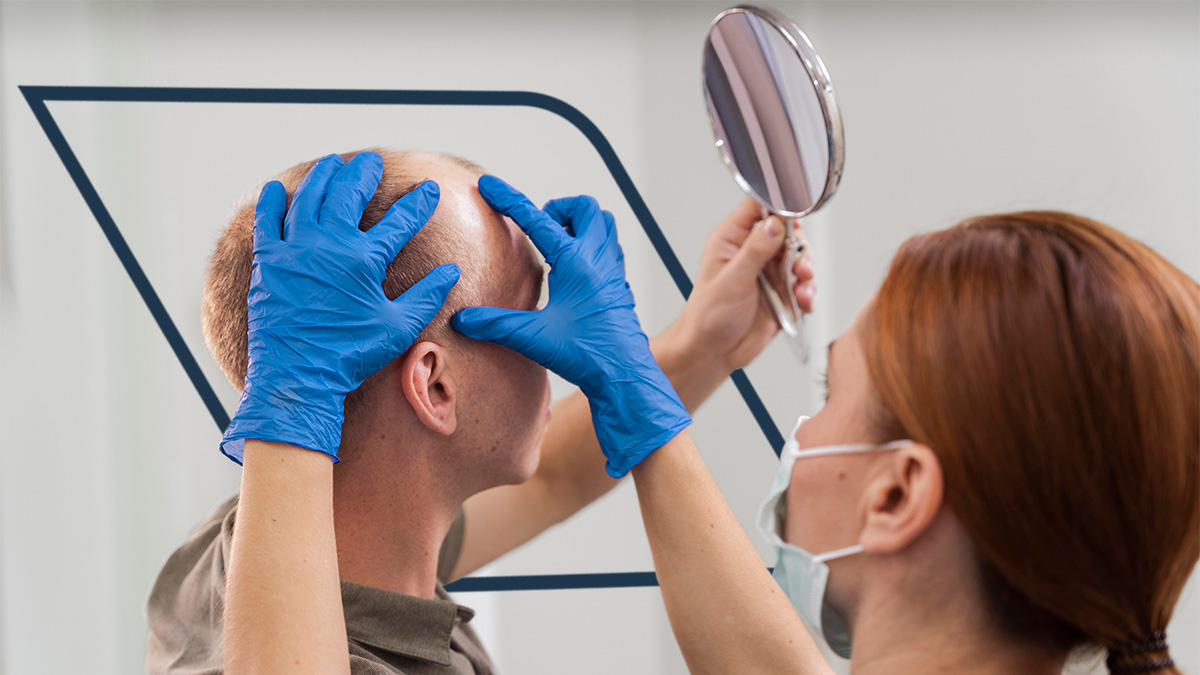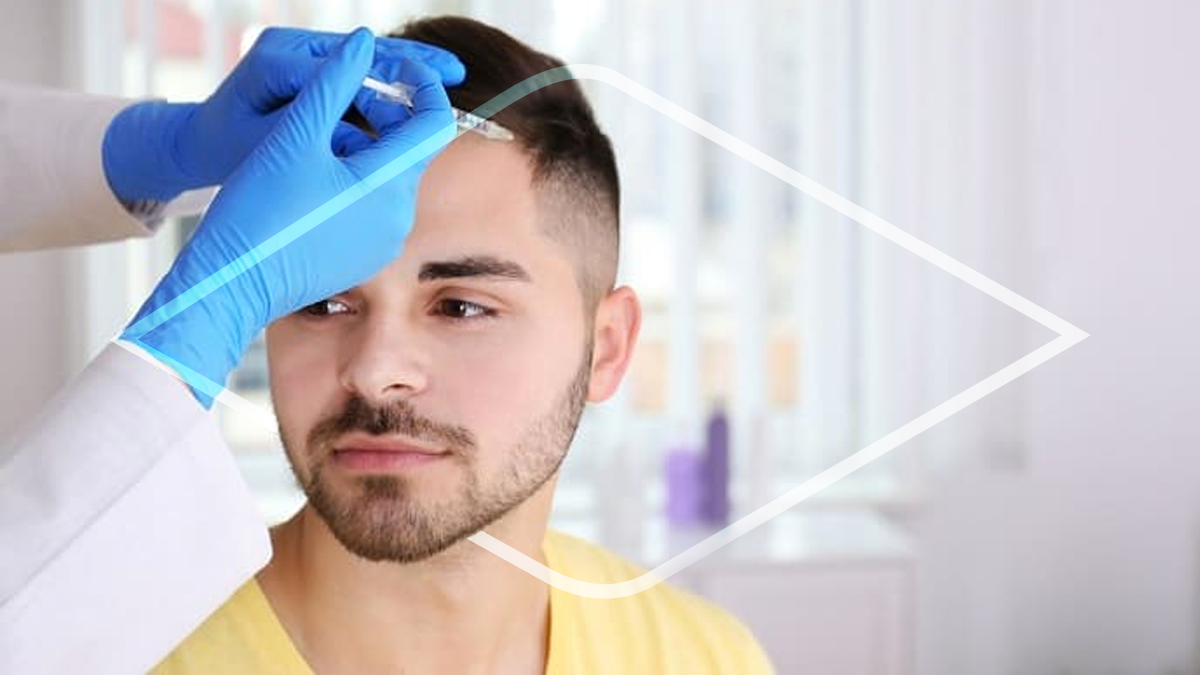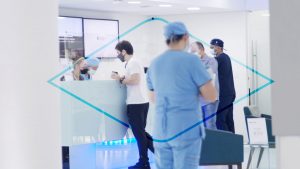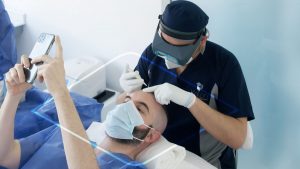Hair loss affects millions in the United States, driving a growing demand for advanced hair restoration services. Hair Transplant Chicago focuses on local clinics, surgical innovations, and patient experiences in the Windy City. Chicago has emerged as a hub for high-quality hair transplant procedures, combining experienced surgeons, cutting-edge technology, and patient-centered care.
The city’s hair transplant industry caters to both domestic and international patients seeking natural-looking results, minimally invasive procedures, and comprehensive post-operative support.
Overview of the Hair Transplant Market in Chicago
Chicago’s hair restoration market is competitive, with clinics offering a range of services tailored to different needs and budgets. Key factors shaping the market include:
- Clinic Accreditation: Most clinics are affiliated with the International Society of Hair Restoration Surgery (ISHRS) or other recognized professional bodies.
- Surgeon Experience: Chicago boasts surgeons with decades of experience in FUE, FUT, and robotic-assisted hair transplantation.
- Medical Tourism: Although primarily serving U.S. residents, Chicago attracts international patients due to its reputation for quality care.
- Patient Education: Clinics emphasize consultation and personalized treatment planning to ensure informed decision-making.
The growth of hair transplant services in Chicago mirrors the nationwide trend, emphasizing precision, natural aesthetics, and minimally invasive techniques.
Dominant Hair Transplant Techniques in Chicago
Chicago clinics employ the most advanced hair restoration methods available:
Follicular Unit Extraction (FUE)
FUE is the preferred technique in many Chicago clinics due to its minimally invasive nature:
- Individual follicles are extracted and transplanted, reducing scarring.
- Recovery time is shorter compared to traditional methods.
- Suitable for patients seeking discreet procedures with high cosmetic appeal.
FUE has been enhanced with robotic assistance and high-definition imaging, ensuring optimal follicle selection and placement.
Follicular Unit Transplantation (FUT)
FUT, or strip harvesting, remains relevant for extensive hair loss cases:
- Involves removing a strip of scalp from the donor area for follicle dissection.
- Allows for higher graft density and coverage in advanced hair loss stages.
- Post-operative scarring is minimal and typically hidden by surrounding hair.
Direct Hair Implantation (DHI)
DHI is increasingly offered in Chicago for precision placement:
- Follicles are implanted directly using specialized tools, without pre-made incisions.
- Enhances natural hair direction and angle.
- Increases graft survival by minimizing follicle handling.
Robotic and AI-Assisted Hair Transplants
Robotics is redefining Chicago’s hair restoration landscape:
- Devices like ARTAS provide automated extraction and precise implantation.
- Reduces human error and procedural time.
- Particularly useful for patients with limited donor hair or complex patterns of hair loss.
Cost Considerations for Hair Transplant Chicago
Pricing in Chicago varies depending on technique, clinic reputation, and patient needs:
| Procedure | Typical Graft Range | Average Cost |
|---|---|---|
| FUE | 1,500–2,500 grafts | $6,000–$12,000 |
| FUT | 2,000–3,000 grafts | $5,000–$10,000 |
| DHI | 1,500–2,000 grafts | $8,000–$15,000 |
Many Chicago clinics offer financing options and package deals that include preoperative consultation, post-operative care, and follow-ups, making hair restoration accessible to a broader demographic.
Preoperative Evaluation and Planning
A successful hair transplant in Chicago begins with a detailed assessment:
- Donor Area Assessment: Evaluates follicle density, hair texture, and scalp health.
- Medical History Review: Screens for conditions like alopecia areata, autoimmune disorders, or chronic illnesses.
- Hairline Design Consultation: Ensures the transplanted hairline aligns with facial aesthetics.
- Photographic Documentation: Establishes baseline visuals for progress tracking and procedural evaluation.
Chicago clinics frequently use virtual consultations to accommodate busy patients, streamline planning, and reduce the need for multiple in-person visits.
Recovery and Post-Operative Care
Post-operative care is essential for successful outcomes:
- Gentle washing and topical care begin within 48–72 hours post-surgery.
- Avoid direct sunlight, intense physical activity, or scalp trauma for several weeks.
- Medications such as minoxidil or finasteride may be recommended to optimize growth.
- Telemedicine follow-ups are increasingly common to monitor healing, particularly for out-of-state patients.
Chicago’s clinics provide detailed aftercare protocols to maximize graft survival and enhance aesthetic results.
Safety and Accreditation
Patient safety is paramount in Chicago’s hair transplant industry:
- Clinics follow strict infection control standards and operate in certified surgical environments.
- Surgeons maintain board certifications and participate in ongoing professional development.
- Risk management includes thorough screening, surgical planning, and structured post-operative monitoring.
Adherence to these standards ensures consistent outcomes and reinforces Chicago’s reputation as a hub for high-quality hair restoration.
Psychological and Social Benefits
Hair loss can affect self-esteem, social interactions, and mental health. Hair restoration in Chicago offers tangible psychological benefits:
- Restores confidence and personal image.
- Reduces anxiety and social self-consciousness.
- Improves professional and personal engagement.
Research published in the Journal of Cosmetic Dermatology indicates that patients report significant improvements in life satisfaction and emotional well-being post-hair transplant, particularly when advanced techniques are used.
Risks and Complications
While Chicago clinics maintain high standards, hair transplantation carries potential risks:
- Temporary shock loss of existing hair.
- Infection or minor inflammation in rare cases.
- Uneven density or unnatural growth patterns if procedures are not executed by experienced surgeons.
- Minimal scarring, primarily with FUT procedures.
Proper surgeon selection, meticulous technique, and patient adherence to post-operative guidelines minimize these risks.
Innovations Shaping Hair Transplant Chicago
Chicago’s clinics integrate global innovations to enhance outcomes:
- Stem Cell Therapy: Emerging techniques aim to regenerate hair follicles.
- Robotics and AI: Automated procedures reduce errors and improve precision.
- Bioengineered Follicles: Research explores high-density transplantation with minimal donor limitations.
- Genetic Profiling: Enables personalized treatment plans based on predicted hair loss patterns.
These advancements position Chicago as a leading city in integrating science, technology, and aesthetics for hair restoration.
What should I consider when choosing a hair transplant clinic in Chicago?
Evaluate surgeon experience, clinic accreditation, patient reviews, procedural options, and post-operative support.
Ensure consultations are thorough, and inquire about advanced techniques like FUE, DHI, and robotic-assisted procedures.
Chicago exemplifies a leading destination in the Hair Transplant World, combining advanced techniques, stringent safety standards, and patient-focused care. By integrating innovative procedures such as FUE, DHI, and robotic-assisted transplants, the city offers reliable solutions for hair restoration. Prospective patients seeking natural, lasting results in the United States can consider Chicago as a benchmark for excellence in hair transplantation. This insight naturally connects to broader discussions on global hair transplant trends and the rise of international medical tourism for hair restoration.







